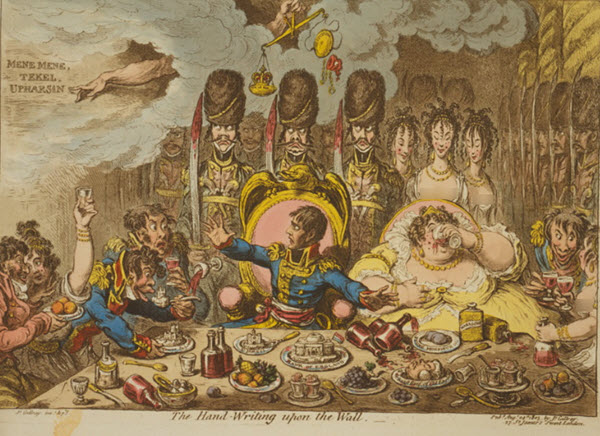The Road of No Return: A First Hand Account of Napolon's Empire
The following is an excerpt of a first hand account by a witness to history. A young man, apprenticed to a watch maker, in a German city that was part of Napoleon's empire gets to see first hand the glory of Napoleon's reign, but comes to a sad realization of what it all means. The original text is from a novel called Moskovasta Waterloohon and is in Finnish. The text can be found here.
Those who did not witness the heights of glory that the Emperor Napoleon reached in the years 1810, 1811 and 1812, will never be able to get an idea of the peak of power and magnificence to which a man may rise.
When Napoleon went through the lands of the Champagne, Lorraine and Alsace he would attract crowds; farmers working in the fields on gathering the harvest put down their work and rushed to see him; women, children and the elderly ran alongside his path with their hands up and shouted: "Long live the emperor Long live the Emperor!"
We almost thought that he was God himself and that the entire world would fall apart and everything would go topsy turvy if an evil death were to befall him. A few of the old Republicans, when the wine had loosened their tongues, shook their heads and dared to say that the Emperor might fall, but they were considered crazy. It was considered absolutely impossible, and no one would bother to allow for even the possibility.

In 1804, I had become apprenticed to the old watchmaker Melkior Gulden in Pfalzburgin city. As a child I had proven to be small and frail, so my mother had wanted a less strenuous occupation for me than what was typical in our home village, where it was just carpenters, mule breeders and drivers. Mr. Gulden liked me, I think. We stayed in a large corner house, on the second floor, opposite the "Red Bull", close to the French gate.
We would see a host of princes, ambassadors and the generals, which continuously came to the city on horseback or covered wagons from all the countries of the world, and the highway was full of couriers, messengers, gunpowder carts, mule trains, supply trains, cavalry and infantry. What a time! What a tumultuous life!
For five or six years, the owner of the Red Bull made a fortune. All those important people from Germany, Switzerland, Russia, Poland and other places did not care about the handful of gold coins that they threw at you; they were noble and as such it was a matter of honor for them not to cut corners.
From morning to evening we could see the tables of the Red Bull always full. Through the large downstairs windows we saw the white table cloths and the shiny silver dishes, filled with venison, fish, and other delicacies, which the travelers ate with gusto. The large back yard was always full of with the noise of maidens laughing and wagons clattering, of ceaseless comings and goings of horses and messengers. It was the Red Bull's heyday, which the hotel will never see again.
Many thousands of our townspeople had joined the army and had gone to fight in distant corners of the world. Whenever a letter arrived from one of them, it made news throughout the city. If the letters brought news of a promotion, everyone believed it, but if the letter said that one of our townspeople had died, now one believed it, and parents and relatives would wait with tear filled eyes for official confirmation, which sometimes never came.
His parents still lived in hope and thought: "Perhaps our son has been taken prisoner, and when peace comes, he will return he home." How many ought to have come home when peace came, but peace never came.
Frequently, imperial regiments marched passed us, ruck sacks on their backs, their rifles slung over their shoulders, kicking up the white dust from the ground. We watched them file past, and Melkior asked me in a contemplative voice:
"Look, Juuse, how many do you think we saw marching past ago just a few years ago in 1804?"
"Hm, I do not know, Mr. Gulden," I replied, "at least four to five hundred thousand. "
"To say the least! And how many have you seen a return?" Then I understood his meaning, and answered:
"Perhaps they returned through Mainz, or another way ... else is not possible! "
But he shook his head and said:
"Those who we have not seen returning, are dead, as hundreds of thousands more will die unless the Lord have mercy on us, because the Emperor does not love other than war! He has already shed more blood in order to obtain crowns for his brothers as our Revolution ever spilled in order to procure human rights! "
We set out again on our work, my thoughts filled with what Mr. Gulden had said.